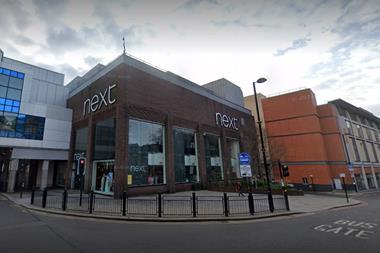The retail industry is in the midst of great change. The internet is accelerating a fundamental shift in people’s thinking about this sector.

Yet current retail policy ignores this shift, disregards economics and makes little or no allowance for changes in social behaviour.
By focusing on bringing people back into town centres, demand for shops and cafés will naturally follow. Focusing on trying to turn the tide of online retailing is a lost cause.
We need to abandon our predilection for large-scale office complexes in the suburbs and instead build them in town centres to generate greater footfall. We must also focus development around tube and railway stations and other public transport hubs to create new high streets.
It is time to go to the crux of the issue, identify elements that contribute to a vibrant space and then, in a logical but creative way, rebuild the heart of our communities. Retailers require footfall, which is created by people using high streets as places of work, travel, leisure and residence. Only by addressing issues facing city-centre working, learning and living can we hope to breathe vitality back into urban centres.
A good example of this is the revitalisation of St Pancras and development of King’s Cross, causing major occupiers to relocate their businesses to what has become a new, vibrant place to work and live and which has, in turn, stimulated further investment in the local community. Similarly, Coventry is a city with strong links between its university and the community. An influx of international students sparked the opening of shops and restaurants aimed at the students in formerly vacant city-centre buildings. The combination of education, research and employment opportunities provided by universities and centres of learning is one route that national and local government can use for rejuvenating our high streets from an economic and social perspective.
Planning alone cannot regenerate town centres. But it is an essential part of the mix. The statutory land-use powers and spatial and placemaking skills are very useful. Planners also have a responsibility not to inadvertently use these powers to obstruct change.
We must encourage change in our town and city centres, not control it. If these centres are to survive and thrive in the modern world, they must respond to people’s needs and we all need to embrace this change, not ignore it.
Rob Thompson is London head of real estate at law firm Irwin Mitchell






























No comments yet